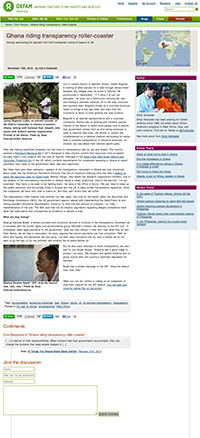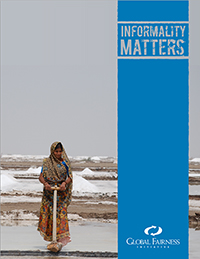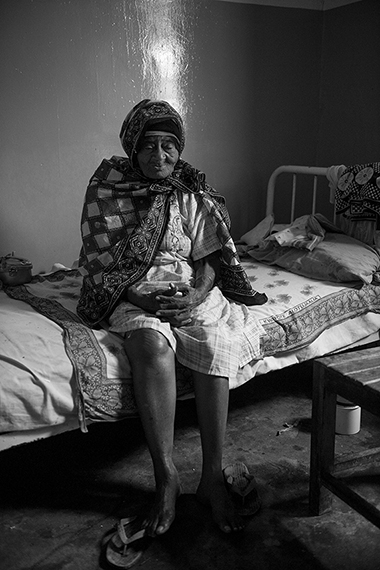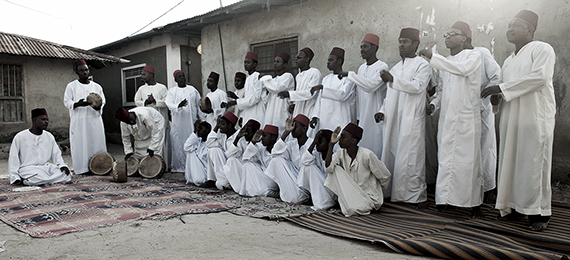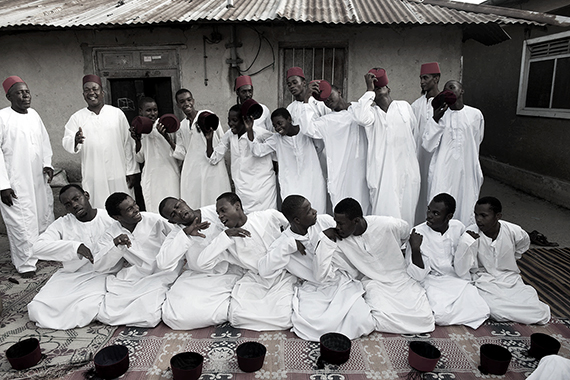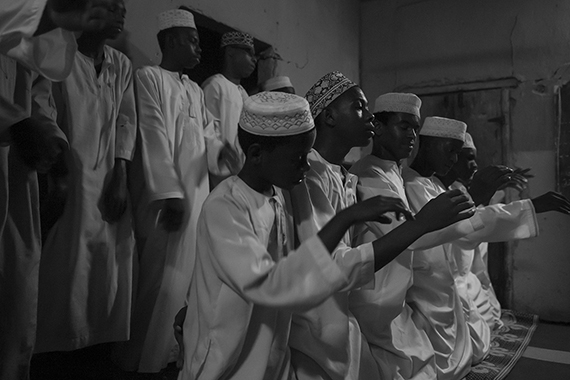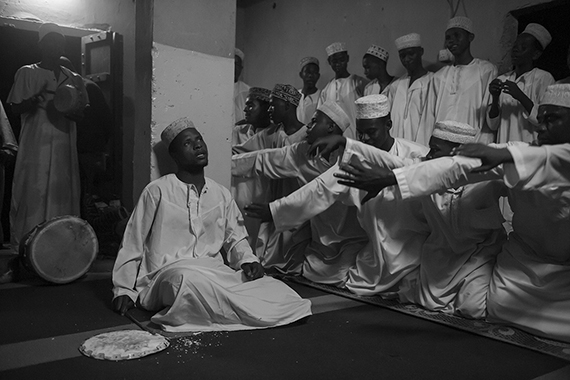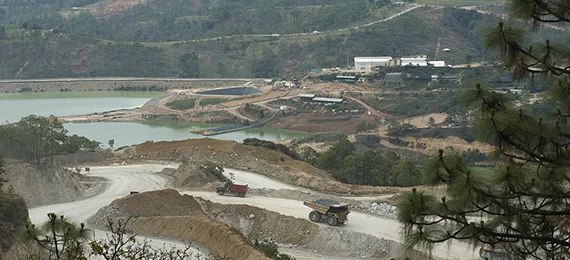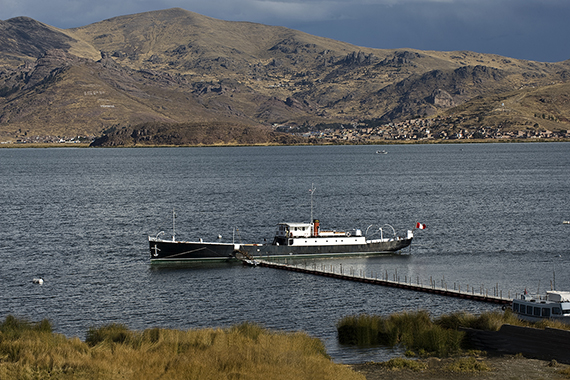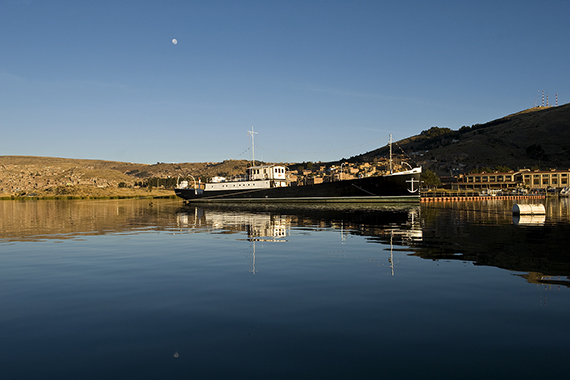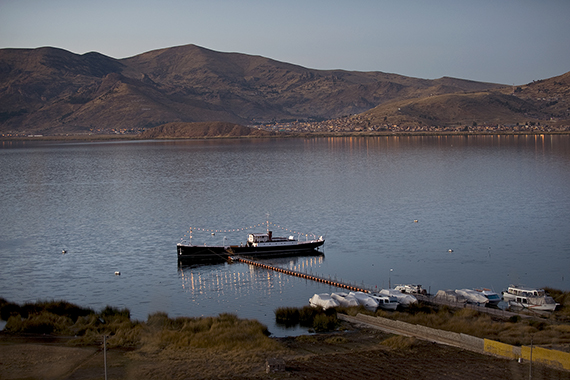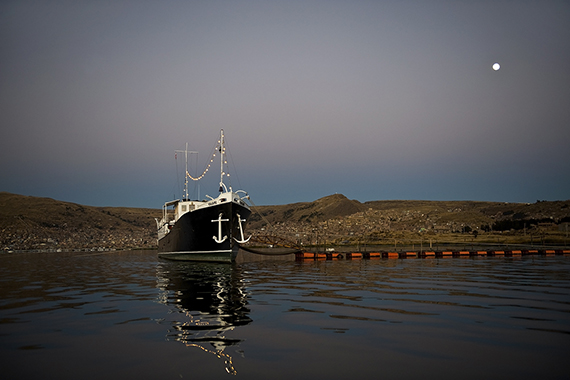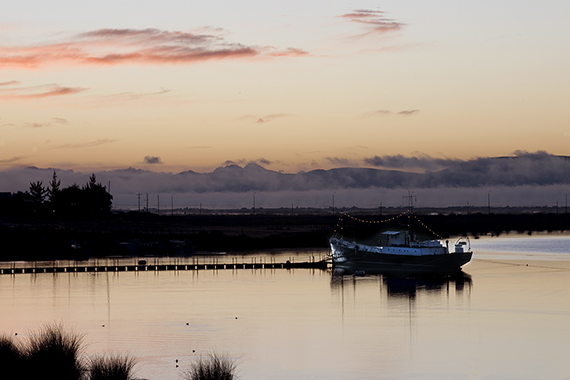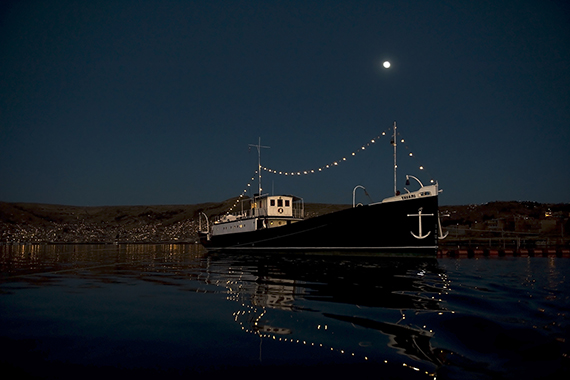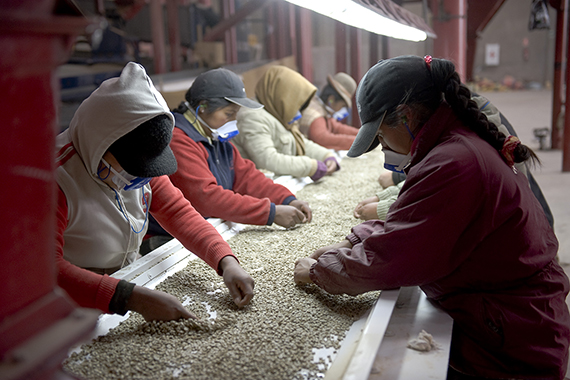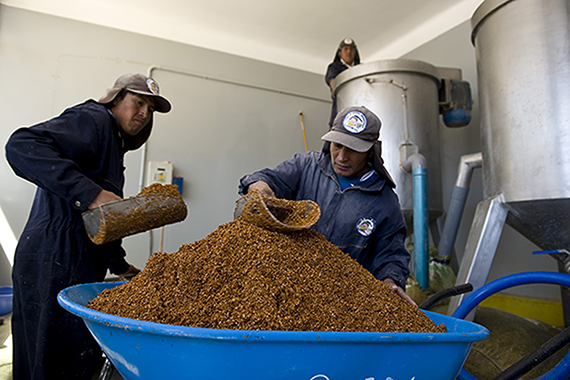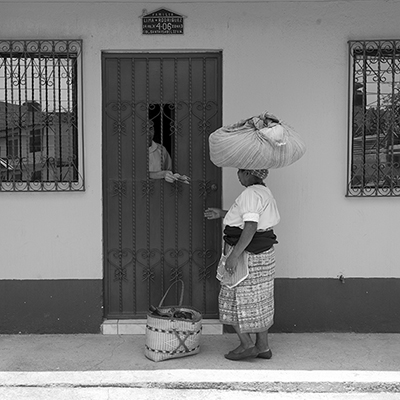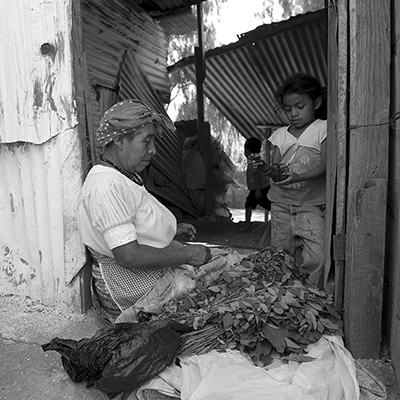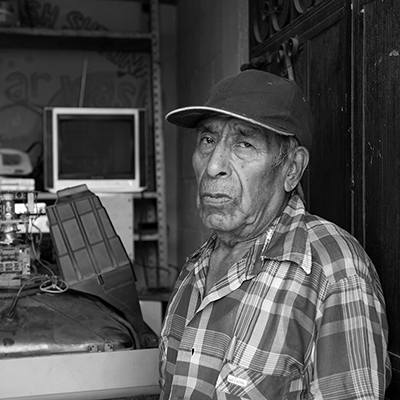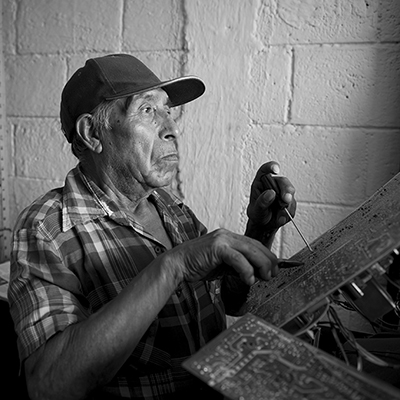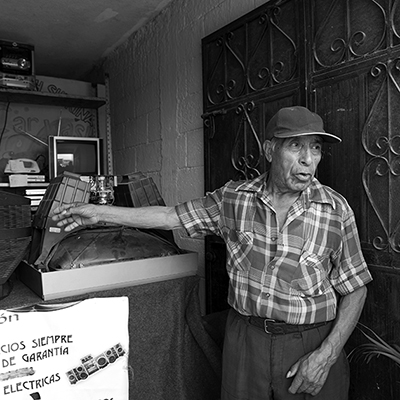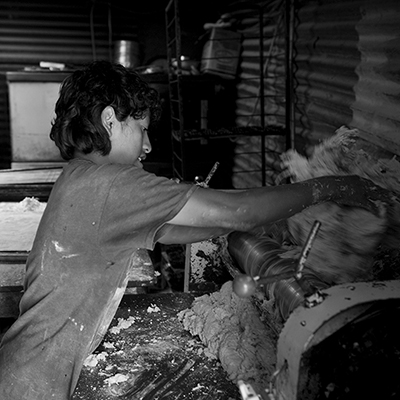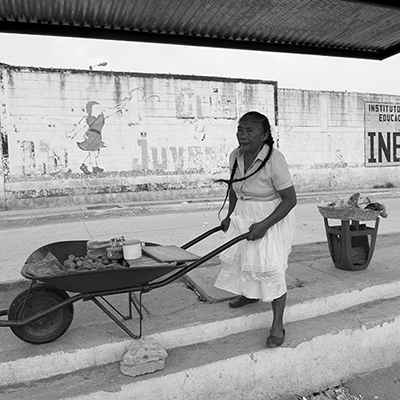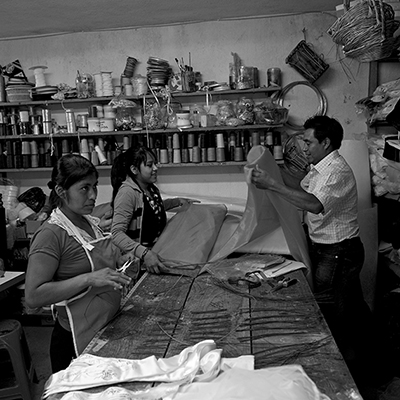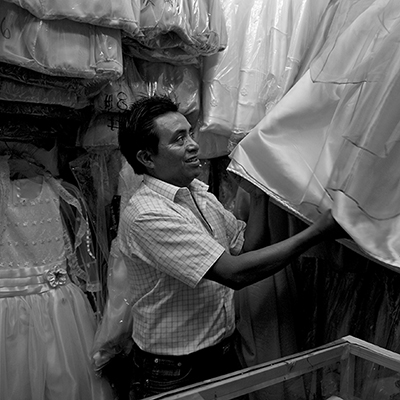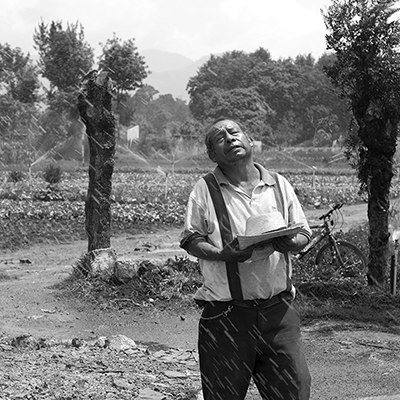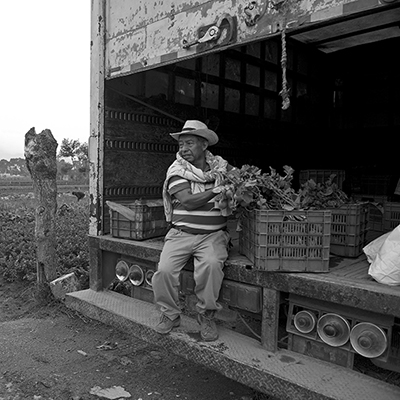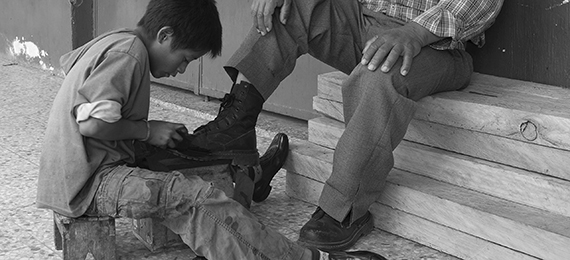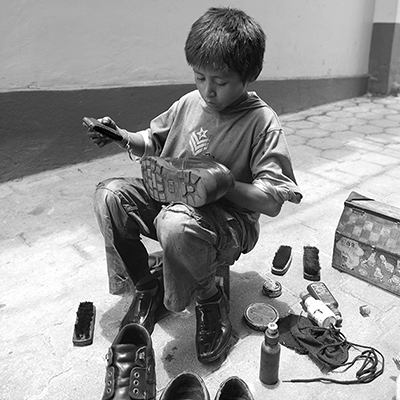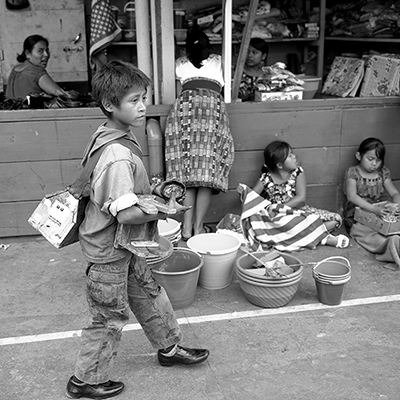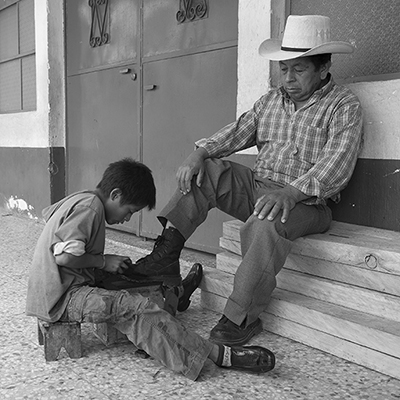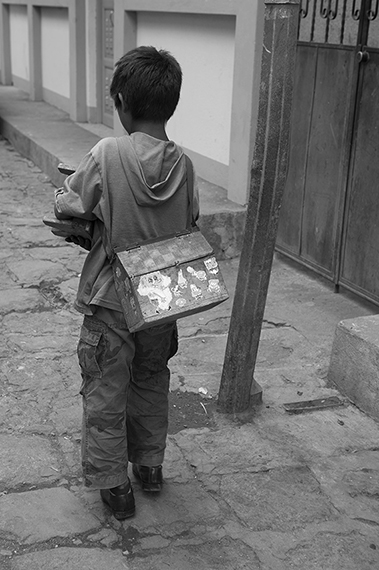This recently published article by Chris Hufstader of Oxfam America tells one of the stories that I photographed earlier this year whilst I was in Ghana. The article talks about transparency of resource revenues in Ghana, so that citizens can see where their national wealth goes.
Photojournalism
Informality Matters; A book on informality by GFI
Many of my photographs are featured in a recently published book on informality by Global Fairness Initiative (GFI):
Informality Matters, by Global Fairness Initiative
© Anna Fawcus Kolkata, India, 2009
© Anna Fawcus Uzi Island, Zanzibar, 2011
© Anna Fawcus West Bengal, India, 2009
Participate Now Zanzibar: Welezo Old Age Home
Over the past month in Zanzibar, I have had the pleasure of getting to know an incredible American woman called Kathryn Sutton who is the director of Participate Now, a local non-profit organization. Kathryn is an amazing lady to talk with, from her history and story about how she ended up in Zanzibar, to the work that she has initiated with her NGO there. She works on grass roots development projects, only assisting those who want assistance, in a realistic and sustainable manner. Kathryn will only assist in a way that will actually be of benefit, and only where people are actively seeking assistance. Participate Now is a transparent organization, with all funds raised going directly to local projects. One of the projects that Participate Now supports is Welezo Old Age Home in Stone Town, Zanzibar. Welezo is a government funded old age home, run by three nuns; whilst there is some basic funding there from the government, Participate Now assists Welezo with additional funding to make life a little more comfortable for some of the residents.
To find out more about Welezo, or Participate Now, have a look at their website
© Anna Fawcus Welezo Old Age Home, Zanzibar, Tanzania
© Anna Fawcus Welezo Old Age Home, Zanzibar, Tanzania © Anna Fawcus Welezo Old Age Home, Zanzibar, Tanzania © Anna Fawcus Welezo Old Age Home, Zanzibar, Tanzania © Anna Fawcus Welezo Old Age Home, Zanzibar, Tanzania © Anna Fawcus Welezo Old Age Home, Zanzibar, Tanzania
Participate Now Zanzibar: Maulidi Ya Homu
In Stone town, Zanzibar, we walked down a narrow alley way as dusk arrived, quickly turning right and up a few concrete steps, where we left our shoes, scattered amongst many others. We were welcomed warmly into the small concrete room, and young boys began to mingle around us, adjusting their white coats and looking for hats that fitted their heads. We sat against the wall in the corner, waiting for the magic to begin, feeling lucky to have received the invite through Kathryn from Participate Now (a local NGO). It was especially magical to hear them for the first time in the setting of their rehearsal room, but equally special to hear them perform outdoors a few days later in their local neighborhood. As the sound began to emerge, it was an experience unlike any other, where the music literally grabbed one’s soul and held onto it for the entire performance. The beats coming from a used paint can lid, combined with traditional instruments and voices like angels was a chilling combination somewhere between song and chanting The ancient Islamic art form of Maulidi ya Homu is an unusual combination, being one of the only prayer groups to incorporate beats into the singing of prayer. They are a group not to be missed. In January 2007, the group traveled to Paris for their first performance in Europe. The group also performs regularly in the Sauti za Busara, an international music festival in Zanzibar.
© Anna Fawcus Maulidi Ya Homu, Zanzibar, 2011
© Anna Fawcus Maulidi Ya Homu, Zanzibar, 2011 © Anna Fawcus Maulidi Ya Homu, Zanzibar, 2011 © Anna Fawcus Maulidi Ya Homu, Zanzibar, 2011 © Anna Fawcus Maulidi Ya Homu, Zanzibar, 2011 © Anna Fawcus Maulidi Ya Homu, Zanzibar, 2011 © Anna Fawcus Maulidi Ya Homu, Zanzibar, 2011
Oxfam America Video: Guatemala: Heart of our Mother Earth
Some of the photography work I did with Oxfam America in Guatemala earlier this year has now been published in a video about the Marlin Mine, by Chris Hufstader. You can view it below, or share it through the YouTube link
[youtube width="550" height="350" video_id="gPiokKhmR6k"]
Article: Mining a Grave Concern in Guatemala's Election
Back in June I did some work with Oxfam America in Guatemala. There is an interesting new article “Mining a Grave Concern in Guatemala's Election” on the 'Policy Innovations' Website, that features one of the photos I took. The story is a very interesting read, about mining in Guatemala, with reference to the notorious Marlin Mine.
Living onboard the Yavari on Lake Titicaca
I've spent the last couple of weeks living onboard the Yavari, a 150 year old British gunship, on Lake Titicaca, in Puno, Peru. I've been staying on the boat as a guest of the Peruvian Times, whilst shooting part of a cookbook in the local area, which will be a fundraising project to help with the future plans for the Yavari. Here's a few photos of the Yavari from the past couple of weeks:
© Anna Fawcus / The Peruvian Times The Yavari, Lake Titicaca, Puno, Peru, 2011© Anna Fawcus / The Peruvian Times The Yavari, Lake Titicaca, Puno, Peru, 2011
© Anna Fawcus / The Peruvian Times The Yavari, Lake Titicaca, Puno, Peru, 2011 © Anna Fawcus / The Peruvian Times The Yavari, Lake Titicaca, Puno, Peru, 2011
© Anna Fawcus / The Peruvian Times The Yavari, Lake Titicaca, Puno, Peru, 2011 © Anna Fawcus / The Peruvian Times The Yavari, Lake Titicaca, Puno, Peru, 2011
© Anna Fawcus / The Peruvian Times The Yavari, Lake Titicaca, Puno, Peru, 2011
For more information on the Yavari project, B&B, or history of the boat, have a look at their website.
Working with the Peruvian Times
I've recently been doing a few small assignments for the Peruvian Times, whilst I've been in Peru. I've visited with a couple of small non-profit organizations, one in Lima, and one in Sacred Valley, Cusco. I've also been working in the region around Puno on a collection of photographs for an upcoming cooking book for the Peruvian Times, which will be used to raise funding for the Yavari Project. The cooking book is from a slightly different angle, showing the farmers, factories, growers and markets, as well as the final meals on plates, so it has been a great few weeks traveling through the countryside, through coffee factories, quinoa plants, local markets, a trout fishing farm, as well as some of Puno's finest restaurants, and hidden gems. I look forward to sharing more when the book is released, but in the meantime, here are a few photos:
© Anna Fawcus / Peruvian Times 2011
© Anna Fawcus / Peruvian Times 2011
© Anna Fawcus / Peruvian Times 2011
© Anna Fawcus / Peruvian Times 2011
© Anna Fawcus / Peruvian Times 2011
© Anna Fawcus / Peruvian Times 2011
© Anna Fawcus / Peruvian Times 2011
© Anna Fawcus / Peruvian Times 2011
© Anna Fawcus / Peruvian Times 2011
The Voiceless Majority: Teresa Goutierez De Garcia
Teresa Goutierez de Garcia is 65 years old. She works in the streets of Guatemala City selling various produce, including cilantro, other herbs and limes. She starts working at 5am in the morning, and continues until the produce is sold. She has been working selling produce in the street for 18 years, since her husband died. She works every day of the week. If she gets sick, she can’t afford to get medical treatment, as it is too expensive. She earns around 15Q a day (US$2). She is lucky that her son owns the house she lives in, so she only needs to earn enough to pay for the bills, such as water, electicity and rubbish removal. If her son did not provide her with a house to live in, she could not afford to survive on what she earns. She lives alone.
© Anna Fawcus
© Anna Fawcus
© Anna Fawcus
© Anna Fawcus
© Anna Fawcus
© Anna Fawcus
All images are © Anna Fawcus 2011 and are part of The Voiceless Majority
The Voiceless Majority: Alberto Antonio Caj Chun
Alberto Antonio Caj Chun is 81 years old. He in employed to work in a shop, fixing televisions, and other electronic devices. He works 6 days a week, from Monday to Saturday, 8am until 6pm at night. When asked if he enjoys his work, he replies that it is necessary. He earns Q200 a month (approx US24 a month). He has five children. He will continue working for as long as he is physically able to. He is very worried about when he will no longer be able to work, for as small as the paycheck is, it is very important for him and his wife. There is no social security to provide a pension or retirement plan for people like Antonio. Because he has worked all of his life in the informal sector, he has no potential of receiving income from any source to enable him to stop working. He and his family depend on the small income that he currently earns.
© Anna Fawcus
© Anna Fawcus
© Anna Fawcus
© Anna Fawcus
All images are © Anna Fawcus 2011 and are part of The Voiceless Majority
Working with Oxfam America in Guatemala
I have spent the week working with Oxfam America in Guatemala. The week began calmly with documenting an extraordinary women’s group in the outskirts of Antigua. As the week continued, we moved across the Western highlands to the Marlin Mine, where interviewed some locals, and heard some disturbing stories. Heading back out to the hotel on the first evening, our mini-van was surrounded by at least 20 men in balaclavas, pointing the barrels of the rifles at us. After a somewhat nervous 10 minutes, we were allowed to pass, lucky for us, they were looking for someone else. I will share links to blog posts and videos of the stories from this trip as they are published by Oxfam. In the meantime, here are a few photos from the trip:
© Anna Fawcus / Oxfam America Guatemala, 2011© Anna Fawcus / Oxfam America Guatemala, 2011
© Anna Fawcus / Oxfam America Guatemala, 2011
© Anna Fawcus / Oxfam America Guatemala, 2011
© Anna Fawcus / Oxfam America Guatemala, 2011
© Anna Fawcus / Oxfam America Guatemala, 2011
Oxfam America are doing an amazing job with very important human rights issues in Guatemala, it was a real pleasure to work with them and photograph some of the people they are assisting. For more information about how to support them and their work, please see their website.
The Voiceless Majority: Umberto Gladius Algeta
Umberto Gladius Algeta is 38 years old. He works selling various small products that he can carry such as sweets and sometimes phone cards. He works between 5-7 days a week, only taking days off for vital medical treatments. Umberto starts at 8am in the morning and works until around 1pm. He has to have a rest in the middle of the day, but then works again from 4pm until 9pm. Umberto earns between Q15-Q30 a day (US$2-$3.50). He has done this work for 1 year. It was 2 years ago that he had his accident. The first year he spent in bed in recovery and the last year he has spent working from his wheelchair. It is very difficult for Umberto when he is unable to work, as this means that he is earning no money, and can not afford to pay for medicines that he needs. Umberto has had an interesting life. He is one of the few informal workers who has had the chance to leave Guatemala and live in America. Prior to his accident, many years ago, he was earning more money, working on a farm. He was able to save enough to pay someone on the black market to transport him across Mexico to America, where he lived for 3 years before being deported. He is very lucky to have lived in America, as it was during this time that he made some friends, who sometimes help him by sending a little money. Without this help, he literally could not survive or afford medical treatment. Umberto has two daughters, who are 2 1/2 and 8 years old. When he had his accident, his wife left him for another man. She took the children with her and he has not seen them since. He doesn’t know where they are, and with his condition it would be nearly impossible to find them. Even i f he could go searching physically, it would be financially impossible with the travel costs. His dreams are to be able to walk again, and to one day see his children again.
© Anna Fawcus
© Anna Fawcus
© Anna Fawcus
© Anna Fawcus
© Anna Fawcus
All images are © Anna Fawcus 2011 and are part of The Voiceless Majority
The Voiceless Majority: Victor Manuel
Victor Manuel is 13 years old. He works in the bakery, where he has worked for 6 months. Before he worked at the bakery he went to school during the week. He now works 7 days a week, starting at 7am and finishing at 3pm in the afternoon. He still studies at school on weekends for 3 hours each day. Victor earns Q400 a month (approx US$50) which he gives to his mother, who then gives him an allowance for lunch. He helps in the house with cooking and other chores after he finishes work for up to 3 hours. He has one sister, who is 15, she also works in the bakery, in the shop from 3pm when they open every day. He does not have a father, only a mother, who has had some problems with drinking. When asked what his dreams in life are, his only dream or aspiration is to work in the bakery. For Victor, this is a very good job and an opportunity to learn a trade. He enjoys his work very much. The opportunity arose for him to work here when the other boy who worked in the bakery got badly burnt and could no longer continue working. In the informal sector, there is no system in place for an employer to assist with medical costs if injured on the job.
© Anna Fawcus
© Anna Fawcus
© Anna Fawcus
© Anna Fawcus
© Anna Fawcus
All images are © Anna Fawcus 2011 and are part of The Voiceless Majority
The Voiceless Majority: Sebastiana Ixchel Suy Morales
Sebastiana is 14 years old. She has been working in her father’s shop for the past 2 years. She works behind the thick bars and padlocks, which are necessary for security. Sebastiana works 7 days a week. She starts work at 7am and finishes at 9:30pm. From Monday to Friday, she leaves work at 12 midday to attend school, and returns to the shop at 6pm when school finishes. When Sebastiana gets home from a very long day of work and study, she spends 1-2 hours helping in the home with chores, such as cooking, and washing clothes. Sebastiana hopes to one day become a lawyer. By working in the shop to help her family, it may be possible for her family to one day afford to help with her eduction to realize this dream.
© Anna Fawcus
© Anna Fawcus
© Anna Fawcus
© Anna Fawcus
© Anna Fawcus
All images are © Anna Fawcus 2011 and are part of The Voiceless Majority
The Voiceless Majority: Marcaria Velasques
Marcaria Velasques is 68 years old. She lives in a small village on the outskirts of Guatemala City. In the morning, she wakes up at 4am to go to the market in Guatemala City by bus. This is the closest local market that she can buy produce from and be able to re-sell it with some kind of a profit. She mostly buys mangoes and plantain chips, which she sells for Q2 and Q1 respectively. On a good day, she earns a total of Q20 (US$2.50). Marcaria lives in a very modest home at the bottom of the town. When she returns from market, she loads up her wheelbar row, and pushes it 10 blocks to where she sells, near the local school. The wheelbarrow is very heavy, it would be heavy for a strong fit person, let alone an elderly woman, yet still every day, she sweats in the heat of the sun to get to where she is able to sell her goods. Marcaria lives alone, as her husband died many many years ago. When she talked about how lonely she is, we had to stop the voice recording as she was crying so much. She works 7 days a week, returning home when the sun goes down to spend several hours on chores in the home.
© Anna Fawcus
© Anna Fawcus
© Anna Fawcus
© Anna Fawcus
© Anna Fawcus
All images are © Anna Fawcus 2011 and are part of The Voiceless Majority
The Voiceless Majority: José Enrique Choc Xicay
José Enrique Choc Xicay is 40 years old. He has a successful small business in Chimaltenango, which he runs from a room in the back of his house. His business is in making clothing, wedding gowns and accessories, karate uniforms, and anything else that can be made with a sewing machine and fabric. He employs 4 staff members, and pays them very well, plus bonuses when selling is good. José previously worked as a traveling salesman, moving to a different place every day to sell his goods. One day he was robbed, and lost everything. This marked the end of this business. With a little help from his uncle, he managed to get a sewing machine, and started with a small business in sewing, which continues to grow. His business is now very successful and he does very well. José works 7 days a week, only taking 3 days off each year. He very much enjoys his work, and is very proud of what he has created. His dream is to one day buy a farm for his family to enjoy growing their own produce and riding horses.
© Anna Fawcus
© Anna Fawcus
© Anna Fawcus
© Anna Fawcus
© Anna Fawcus
All images are © Anna Fawcus 2011 and are part of The Voiceless Majority
The Voiceless Majority: Blas Calan Tuye
Blas is a 64 year old farmer who lives in Chimaltenango. He starts work at 5am in the morning. Blas does not have his own land, and so he works for other people when they need him. This means that his work is not regular, nor is his income. His wife also works selling bread in the markets. When Blas does not have work on the farms, his wife works as a cleaner or maid in other people’s homes when she can, to earn extra income for the family. Blas and his wife have two children, who are 12 and 14 years old. They are lucky enough to be able to go to school. When Blas has a lot of work on the farms, and needs help, his wife and children will go to the fields with him to work. Blas said that his dream would be to have his own land, to be able to grow his own crops and tend to them. Blas earns 50Q (approx US$6) a day when he is working, this is enough to support his family and send his children to school.
© Anna Fawcus
© Anna Fawcus
© Anna Fawcus
© Anna Fawcus
© Anna Fawcus
All images are © Anna Fawcus 2011 and are part of The Voiceless Majority
The Voiceless Majority: Victoria Caal
Victoria Caal lives in San Juan Chmelco, Alta Verapaz. She is 50 years old, and has worked as a street vendor in Coban for the past 42 years, since she was 8 years old. She works 7 days a week, 365 days a year. Victoria starts work at 7am every day and finishes at 6pm. Before work, she goes to the markets to buy produce, making her working day a total of more than 12 hours. Victoria has 12 children, 3 of whom live with her in the single room that she rents on the outskirts of Coban. Her children's names are: Victor Haroldo, Maria Rumalda and Angela Victoria. Angela Victoria goes to school in the mornings, and helps her mother out in the afternoons. She is 7 years old. Victoria Caal is married to an alcoholic, who doesn't live with her or the children, so is solely responsible for raising and supporting her children. At their home, the only access to water is a 20 minute walk away, so every morning, Victoria wakes up at 4am to collect water before her working day begins. Her children help with chores at home, including collecting fire wood, cooking, cleaning and laundry. They often are at home alone. Victoria can not afford to ever take a day off work. If she is sick, she may go to the hospital or doctor before or after work if she can afford to. On a good day, selling produce on the streets Victoria will earn Q25, the equivalent of US$3 a day. When asked what her dreams were, she replied “to one day own a small piece of land so I know that my children will always have somewhere to live... and I would love to have a real shop one day if I could ever afford it.”
© Anna Fawcus
© Anna Fawcus
© Anna Fawcus
© Anna Fawcus
© Anna Fawcus
All images are © Anna Fawcus 2011 and are part of The Voiceless Majority
The Voiceless Majority: Ernesto Alfredo
Ernesto Alfredo i s 11 years old. Ernesto lives in San Marcos, Lake Atitlan. He travels across the water by a small boat each day to work as a ‘shoe- shine’ boy in San Pedro. Ernesto used to go to school, but six months ago his father got sick. Once his father became ill, the family could no longer afford to send Ernesto to school. In fact, his family could no longer continue to survive without the extra income generated from Ernesto starting to work. Ernesto began to work shining shoes on the streets to help his family. Erneesto works every day of the week, walking the streets alone, asking people i f he can shine their shoes. He charges Q2 for a shoe- shine (approx US$0.25). He works every day of the week, and earns around Q25 on a good day (approx US$3 a day). The money that Ernesto earns on the streets of San Pedro he gives to his parents each evening when he returns home. When asked what his dreams are, Ernesto thought for several minutes, as if he had never considered the possibility of dreams. He eventually answered that one day he hopes to become a driver, a chauffeur.
© Anna Fawcus
© Anna Fawcus
© Anna Fawcus
© Anna Fawcus
© Anna Fawcus
All images are © Anna Fawcus 2011 and are part of The Voiceless Majority
Global Fairness Initiative: The Voiceless Majority
I'm currently living in Guatemala, and working on an ongoing project with Global Fairness Initiative (GFI), an American non-profit organization, based in Washington DC. The project has been a documentary of the informal sector living in Guatemala and is called 'The Voiceless Majority'.
Here's a summary of what the project is all about:
In Central America, on average, 50% of the labor force works in the informal economy. In Nicaragua alone 7 out of 10 jobs are created in the informal economy and in Guatemala the rate is even higher. The informal economy in the region is characterized by vulnerability and diversity composed of wage employees, the self-employed including small-scale farmers, domestic workers, home-based workers, and micro-enterprises. Informal workers generally do not have access to government benefits such as social security or health care, are highly exposed to market fluctuations, and broadly lack physical and financial security.
Informality creates an alternative or shadow economy, which is not recorded in macro-economic terms, shrinking the perceived gross domestic product (GDP) and limiting formal exports, financial transactions, and technological investments. The formalization ceiling prevents micro-, small, and medium-sized enterprises (MSME) from fully participating in economies of scale, hindering their competitiveness in global markets. Informality also eats away at government capacity, reducing the tax base and segregating the population from its leadership.
Like food security or poverty reduction, informality is one of the major development issues of our time and should be addressed with comprehensive strategies and programs aimed at its root causes. Yet informality remains the domain of white paper reports and not of field based interventions, despite economic impact that it creates in developing nations. So why would an issue of such significance stay in the academic sphere while related issues like poverty are mainstreamed into development initiatives? We believe the reason is the image.
When you ask someone “what is poverty” an image jumps into their head. It’s the destitute farmer on a drought ridden plain standing outside a dilapidated home, or it’s the tattered rag picker squatted on a busy street in Dharavi. Ask the same about food insecurity or gender inequity and an image comes to mind. But, ask about informality and there’s no image, thus no story, no context, no response to drive action.
The Voiceless Majority photography project is aimed at providing an image and story on informality by exhibiting the experience and “face” of the informal sector. The project will display a collection of photographs of the lives and livelihoods of 6 informal sector workers from Guatemala. For each series audio recordings of the actual subjects will broadcast to provide a combination of “face” and “voice” that tells the story of an informal worker and thus personalizes “informality.”
Each story will become a blog post. I will update this blog post with links to each of the new posts:

